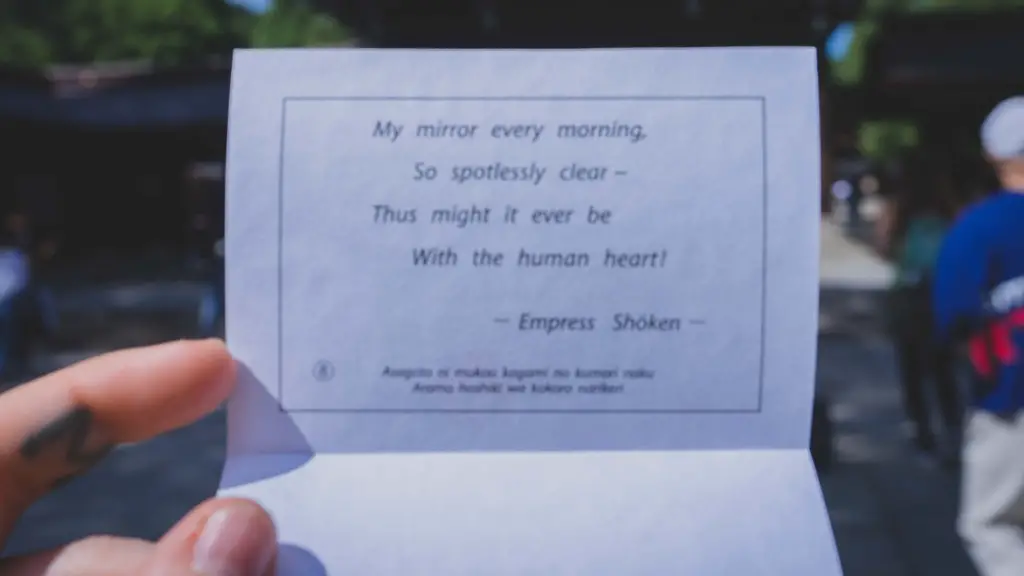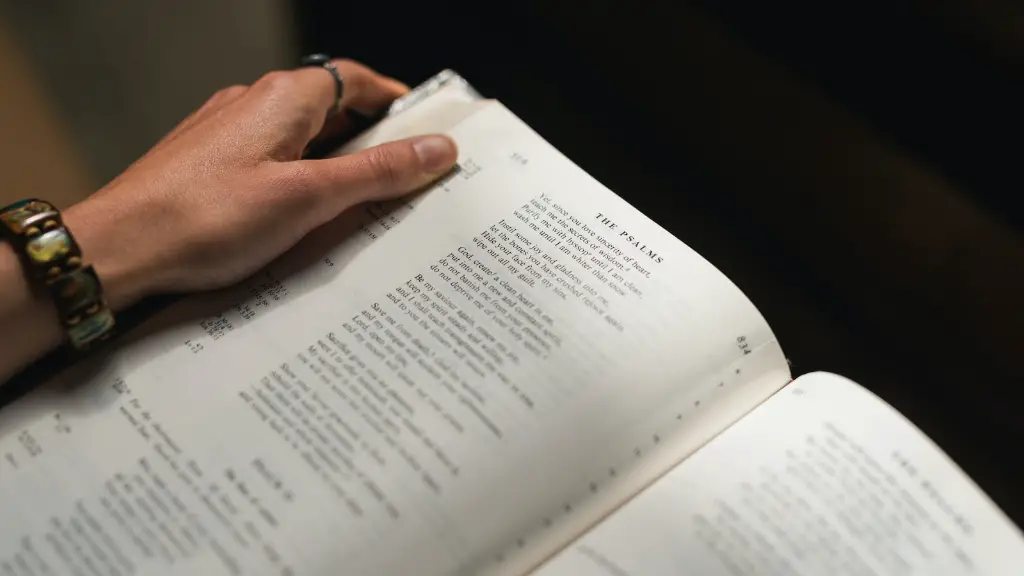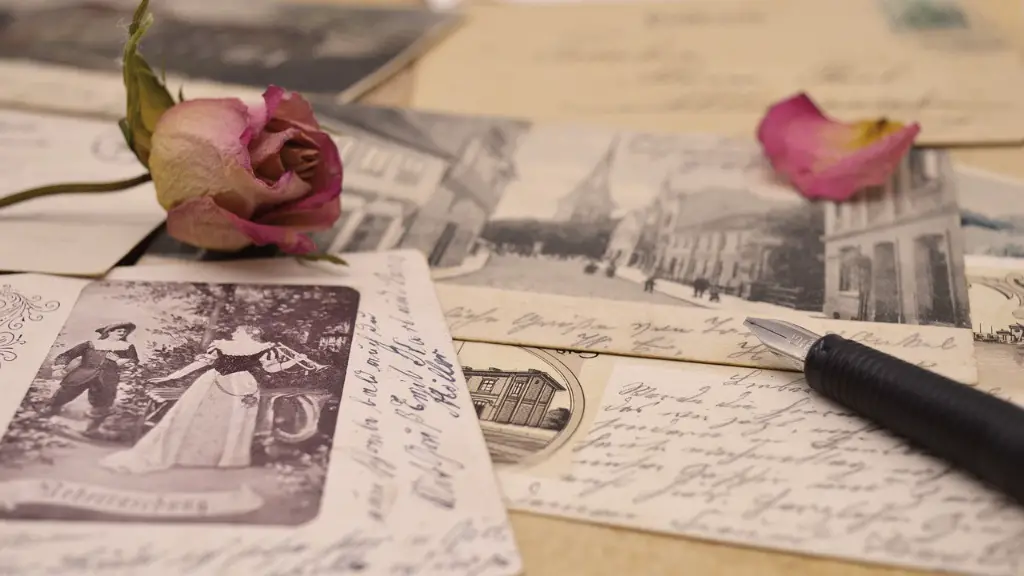Langston Hughes was an African-American poet, novelist and playwright who dedicated much of his work to the plight of African-Americans. Born in 1902, he went on to become one of the most celebrated and influential figures of the Harlem Renaissance. Throughout his career, Hughes wrote a variety of poems with different themes and topics, however, the main themes of his work were to capture the African-American experience, to explore the history of a marginalized people and to systematize African-American culture. He was not just writing to celebrate his people and their successes, but also to open the wide gap that existed between the African-American experience and the dominant narrative of what it meant to be an American.
Hughes’ poetry is known for its powerful and direct language. His writings addressed the various issues affecting African-Americans such as racism, discrimination, poverty and other social injustices. He wrote about these topics in a way that made them easily understood and accessible to all. Hughes believed that if he could make even a small impact with his words, it could set in motion a change larger than himself which would reverberate through generations.
In his poems, Hughes often used metaphors and imagery to illustrate the many complexities and experiences of African-Americans. He wrote about the realities of racism, in the form of lynchings and other acts of violence, and the need for social change. Hughes also tackled the themes of identity and rebellion, of fate, and of the African-American’s struggle for freedom. His poems explored the pain, the joys, and the dreams of African-Americans living in a country that questions their value, but ultimately has a great deal to offer them.
In addition to his own musings and observations, Hughes’ poetry often included the experiences and perspectives of other African-Americans. He wrote about the unique cultural identity of African-Americans and the beauty of their traditions and customs, allowing readers to gain a better understanding of them. His poetry acknowledges the harsh realities of their everyday struggles, while also celebrating their resilience and tenacity.
Hughes’ work is not just valuable from an artistic point of view but is incredibly important from a historical standpoint as well. His words breathed life into the African-American experience and illustrate the immense potential within a largely untapped culture. His poems are still taught in schools around the world as an important way to understand the plight of African-Americans and to recognize the unique contributions they have made to American culture.
Although Hughes is no longer alive, his written and spoken word will live on forever. His writing provided a voice and a platform for a largely overlooked community, while also shining a spotlight on the oppression and struggles they faced. His work is a powerful reminder of the beauty, strength and courage of African-Americans and a testament to their resilience.
African-American Identity
Hughes’ poems highlighted the unique experiences faced by African-Americans. He wrote about the ways in which African-Americans created their own identity during times of oppression and marginalization, as well as the ways in which they have been welcomed into mainstream society. He explored the language of African-Americans, their music and their art, recognizing that it was these elements that allowed them to create a strong and positive identity despite the discrimination they faced.
In his poem, “All Souls’ Day,” Hughes wrote of the struggle to form an African-American identity, or to “dance just a little too hard and sing just a little too strong.” He captures the idea that African-Americans had to pay a heavier cost to be accepted into society, to be given the opportunities to which they were entitled.
In “Dream Variation,” Hughes wrote of the vast potential and hope of African-Americans, and of their desire for freedom. He wrote of the joy of dreaming of a better future, of being “free-boundless, unlimited, unafraid” and of being “happier than anyone.” Through his words, Hughes called for a new dawn of hope and possibility for African-Americans.
Rebellion & Resistance
Hughes also used his poetry to capture the theme of rebellion and resistance during times of struggle. In “Let America Be America Again,” Hughes wrote of the spirit of rebellion that characterizes some African-Americans, of their refusal to accept the injustices and inequalities they face. He writes of how America was meant to be an “oasis of freedom,” and of how it has failed them despite its promises.
In “I Too,” Hughes wrote of how African-Americans were ostracized and excluded from the national identity, urging that they “eventually be allowed in.” He wrote of the resilience of African-Americans in the face of such discrimination and of their refusal to be silenced, for their hope for a better future was greater than the discouragement that surrounded them.
In “A Dream Deferred,” Hughes wrote of the dreams of African-Americans and the danger of their deferred hope, of how these dreams could “dry up like a raisin in the sun” if they were not given the opportunity to develop and grow. He wrote of the revolutionary potential of African-Americans, of “what if” these dreams were allowed to flourish.
Racism & Discrimination
Hughes used his poetry to talk about some of the most difficult topics facing African-Americans today. He wrote of how racism and discrimination were affecting their daily lives and of how they had been hurt and betrayed by their supposed protector and guardian.
In “Justice,” Hughes wrote of his fear and anger at the system of racism that has been in place for far too long, and of how African-Americans were denied justice in the face of inequality and prejudice. He wrote of how they were “being tried for aspirations” and of how their dreams were on trial.
In “White Man,” Hughes wrote of the prejudice and hate directed at African-Americans, of their frustration that the color of their skin was used as a weapon against them. He wrote of his hope for a better tomorrow, for a world where everyone is treated with respect, kindness and love.
The Legacy of Langston Hughes
Langston Hughes’ poetry has left an indelible mark on the world, leaving a lasting impression in how we view and understand African-American culture. His work is still widely read and studied today, and his words continue to inspire and give hope to those who come after him. Hughes wrote of dreams and aspirations, of struggles and resilience, and of strength and perseverance.
Although Langston Hughes has passed on, his poetry and his words will remain with us for generations, inspiring all of us to keep dreaming and to keep fighting for a better world. He gives us hope that one day, the dreams of African-Americans will be realized, and that they will be given the respect, acceptance and opportunity they deserve.




